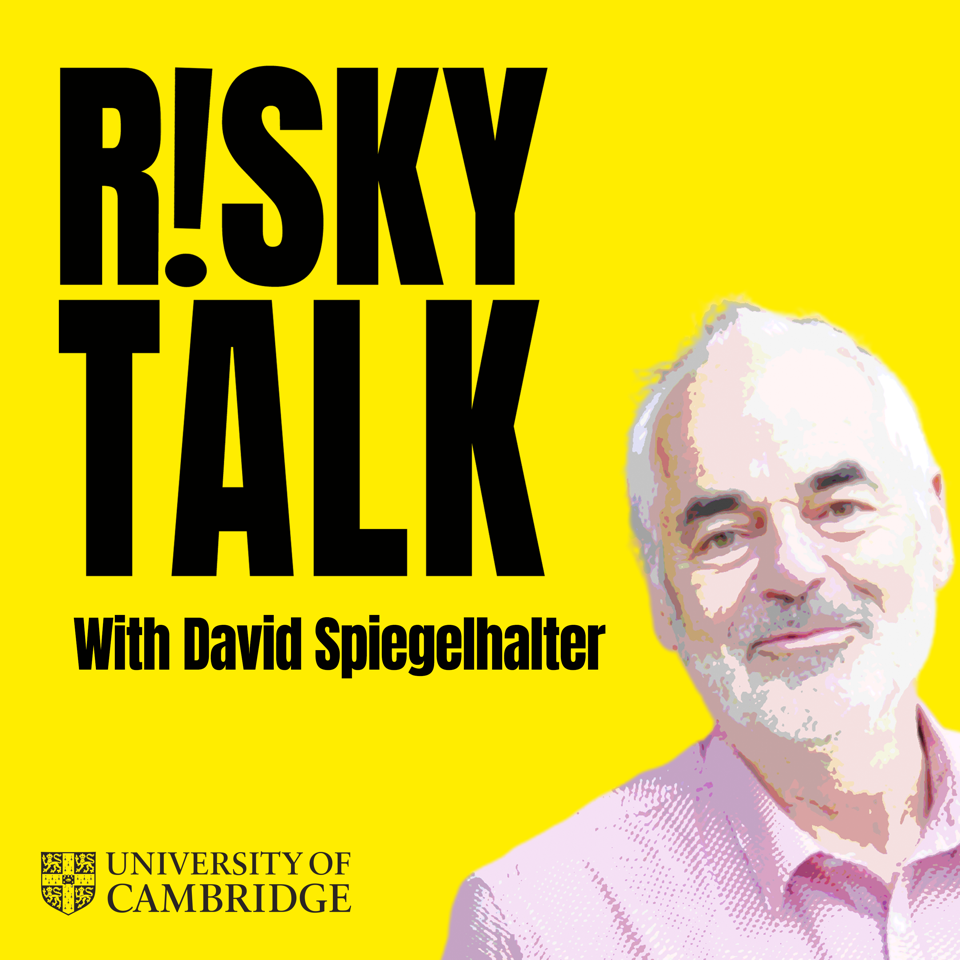In this series of posts, we’ll be featuring mathematical podcasts from all over the internet, by speaking to the creators of the podcast and asking them about what they do.
We spoke to Ilan Goodman from the Winton Centre for Risk & Evidence Communication at the University of Cambridge, about the centre’s new podcast Risky Talk, in which Sir David Spiegelhalter talks to risk experts about probability and stats.

Podcast title: Risky Talk
Website: riskytalk.libsyn.com
Links: Apple – Spotify – Google Podcasts
Average episode length: 50 minutes
Recommended episode: Communicating About Climate Change
What is your podcast about?
Risky Talk features conversations with the world’s top experts in risk and evidence communication addressing urgent, practical challenges: How can doctors communicate the risks and benefits of medical treatment? How should scientists communicate evidence about climate change? How can journalists make numbers meaningful to readers? How should government institutions convey important statistics?
Who hosts the podcast?
The podcast is hosted by David Spiegelhalter – one of the few world-famous statisticians! He’s a seasoned communicator about stats and a champion of evidence-based decision making, especially in policy and health. He’s brilliant at making numbers meaningful to different audiences and helping people use evidence to make informed decisions. Check out his bestselling book The Art of Statistics.
David leads the Winton Centre for Risk and Evidence Communication who produce the podcast. We’re based at the University of Cambridge and, as you might expect from the name, our mission is to improve the way risk and evidence is communicated.
What are your episodes like?
Each episode tackles risk and evidence communication in a different domain – like climate change, medical genetics or political journalism. They are widely accessible but of specific interest to professionals who work in or around those fields.
The format is a conversation between David and (normally) three guests. We generally include scientists doing primary work the field (e.g. a climate scientist, a geneticist or statistician) and psychologists who have researched how ordinary people interpret and make decisions. The aim is to bring the insights together: we discuss the evidence itself and how to help non-specialists to understand and use the evidence to make important decisions.
What exciting plans do you have for the future?
There are lots of juicy topics left to tackle. Diet and nutrition, journalism, law and forensics, different areas of medicine. we’ll be busy for a little while!